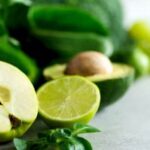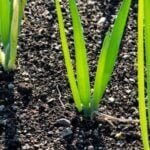What fertilizer is best for vegetable gardens? Choosing the right fertilizer is crucial for the successful growth and development of vegetable plants. This article explores the different types of fertilizers, nutrient requirements of vegetable plants, timing and frequency of fertilizer application, as well as the best organic and synthetic options available. By understanding the specific needs of your vegetable garden and considering various factors, you can select the most suitable fertilizer to promote optimal growth.
When it comes to vegetable gardening, using the appropriate fertilizer is essential for ensuring healthy plants and a bountiful harvest. Whether you opt for organic or synthetic fertilizers, it’s important to understand the nutrient requirements of your specific vegetables and consider factors such as soil composition and climate. By making informed choices about fertilizer, you can provide your vegetable garden with the necessary nutrients for robust growth and high yields.
In this article, we will delve into the world of vegetable garden fertilizers, exploring the differences between organic and synthetic options. We will also discuss the specific nutrient needs of various vegetable plants, as well as provide insights on when and how often to apply fertilizer.
Additionally, we will highlight some of the best organic and synthetic fertilizers available in the market today. By understanding these essential aspects, you can make informed decisions when choosing the best fertilizer for your vegetable garden.
Different Types of Fertilizers
When it comes to fertilizing your vegetable garden, one of the key decisions you’ll need to make is whether to use organic or synthetic fertilizers. Organic fertilizers are derived from natural sources such as compost, manure, and other plant and animal products.
They are rich in essential nutrients and improve soil structure, but they tend to release their nutrients slowly. On the other hand, synthetic or chemical-based fertilizers are manufactured to provide a quick nutrient boost to plants, but they can also leach into water sources and harm the environment if overused.
It’s important to consider the specific needs of your vegetable plants when choosing the type of fertilizer. Some vegetables may thrive with organic options, while others may require the quick-acting benefits of synthetic fertilizers. For example, leafy green vegetables like lettuce and spinach often do well with organic fertilizers that release nutrients slowly over time, while fruiting vegetables like tomatoes and peppers may benefit from the immediate nutrient availability provided by synthetic fertilizers.
In addition to considering the needs of your specific vegetable plants, you should also take into account your own gardening practices and environmental concerns when deciding between organic and synthetic fertilizers. While organic options may require more effort in terms of composting or sourcing natural ingredients, they promote long-term soil health and sustainability. Conversely, synthetic fertilizers offer convenience and rapid results, but their use should be carefully monitored to prevent over-fertilization and environmental damage.
| Organic Fertilizer | Synthetic Fertilizer |
|---|---|
| Derived from natural sources such as compost, manure | Manufactured chemical compounds for quick nutrient release |
| Rich in essential nutrients | Provide quick nutrient boost to plants |
| Beneficial for long-term soil health and sustainability | Require careful monitoring to prevent over-fertilization |
Nutrient Requirements of Vegetable Plants
When it comes to choosing the right fertilizer for your vegetable garden, it’s important to understand the specific nutrient requirements of different varieties of vegetable plants. Each type of vegetable has its own unique needs when it comes to essential nutrients, and providing the proper balance of these nutrients is crucial for promoting healthy growth and abundant yields.
Essential Nutrients for Vegetable Plants
Before selecting a fertilizer for your vegetable garden, it’s important to be aware of the essential nutrients that all plants need for growth. These include nitrogen, phosphorus, potassium, calcium, magnesium, sulfur, and several micronutrients such as iron, zinc, and boron. Different vegetables have varying requirements for these nutrients at different stages of their growth cycle.
Understanding Specific Needs
For example, leafy greens like spinach and lettuce require higher levels of nitrogen to support lush foliage growth. Root vegetables such as carrots and radishes benefit from a higher potassium content in their fertilizer to promote strong root development. Understanding these specific needs will help you choose the best fertilizer for each type of vegetable in your garden.
Selecting the Right Fertilizer
When considering what fertilizer is best for vegetable gardens, it’s important to select a product that provides the appropriate balance of nutrients based on the specific needs of your crops. For example, a balanced 10-10-10 fertilizer may be suitable for many types of vegetables, but some may require a specialized blend with higher levels of certain nutrients.
Conducting soil tests and researching the nutrient requirements of your specific vegetables will help you make an informed decision when choosing the right fertilizer for your garden.
Timing and Frequency of Fertilizer Application
When and how often you should fertilize your vegetable garden depends on various factors such as the type of vegetables you are growing, the soil quality, and the type of fertilizer you are using. Understanding the timing and frequency of fertilizer application is essential for promoting healthy, vigorous growth in your vegetable plants.
Timing of Fertilizer Application
The timing of fertilizer application is crucial for ensuring that your vegetable plants receive the nutrients they need at the right stage of growth. It is generally recommended to apply fertilizer before planting your vegetables to prepare the soil with essential nutrients. Additionally, incorporating a slow-release fertilizer into the soil at this stage can provide a steady supply of nutrients throughout the growing season.
Frequency of Fertilizer Application
The frequency of fertilizer application will depend on several factors including the type of vegetables you are growing, the nutrient requirements of those specific plants, and the condition of your soil. In general, it is advisable to apply fertilizer again after your vegetables have been planted and have started to grow. This second application should be timed based on the specific needs of the crops you are cultivating.
Considerations for Vegetable-Specific Nutrient Needs
Different types of vegetables have varying nutrient requirements at different stages of growth. Before determining the frequency and timing of fertilizer applications for your vegetable garden, it is important to research and understand the specific nutrient needs of each variety you are cultivating.
This will help ensure that you are providing adequate nourishment to support healthy plant development and abundant harvests. Knowing when and how often to fertilize your vegetable garden will not only promote optimal plant growth but also contribute to a successful harvest that is both bountiful and nutritious.
By considering these factors when deciding upon when and how often to apply fertilizer in your vegetable garden, you can better meet their nutritional demands, leading to healthier plants and more substantial harvests.
Best Organic Fertilizers for Vegetable Gardens
When it comes to choosing the best fertilizer for your vegetable garden, organic options are often preferred for their natural and nourishing benefits. Organic fertilizers are derived from natural sources such as compost, manure, and bone meal, providing a sustainable and environmentally-friendly approach to feeding your plants. But with so many organic fertilizers on the market, how do you know which ones are the best for your vegetable garden?
One of the top organic fertilizers for vegetable gardens is compost. Compost is a rich source of nutrients that can improve soil structure and provide essential elements for plant growth. It also helps retain moisture in the soil, making it an excellent all-around option for vegetable gardens. Another popular choice is fish emulsion, which is made from processed fish waste and provides a concentrated source of nitrogen, phosphorus, and potassium.
In addition to compost and fish emulsion, other top organic fertilizers for vegetable gardens include seaweed or kelp meal, which are high in trace minerals and beneficial plant hormones. Additionally, blood meal is rich in nitrogen and can support healthy leafy growth in vegetables like lettuce and spinach. By choosing these natural options, you can ensure that your vegetable garden receives the best possible nourishment while minimizing harm to the environment.
| Organic Fertilizer | Benefits |
|---|---|
| Compost | Rich source of nutrients; improves soil structure; retains moisture |
| Fish Emulsion | Concentrated source of nitrogen, phosphorus, and potassium |
| Seaweed or Kelp Meal | High in trace minerals and beneficial plant hormones |
| Blood Meal | Rich in nitrogen; supports healthy leafy growth |
Best Synthetic Fertilizers for Vegetable Gardens
When it comes to synthetic fertilizers for vegetable gardens, there are a variety of options available on the market. While organic fertilizers may be the go-to choice for many gardeners, synthetic fertilizers can also provide the necessary nutrients for optimal plant growth. Here are some of the most effective chemical-based fertilizers that you can consider for your vegetable garden:
- Miracle-Gro Water Soluble All Purpose Plant Food: This popular synthetic fertilizer is known for its ability to promote fast and healthy growth in vegetable plants. It contains essential nutrients such as nitrogen, phosphorus, and potassium, which are vital for overall plant development.
- Scotts Turf Builder Lawn Food: While originally designed for lawns, this synthetic fertilizer can also be beneficial for vegetable gardens. It provides a balanced mix of nutrients that promote strong root systems and vibrant foliage in vegetable plants.
- Jobe’s Organics Vegetable & Tomato Granular Fertilizer: Despite being labeled as “organic,” this fertilizer actually contains both organic and synthetic components. It is enriched with beneficial microorganisms and mycorrhizae that help enhance soil quality and maximize nutrient absorption in vegetable plants.
When considering synthetic fertilizers for your vegetable garden, it’s important to keep in mind the specific needs of your plants and the soil conditions in your garden. Additionally, always follow the instructions provided by the manufacturer regarding application rates and frequency to avoid over-fertilization.
Ultimately, choosing the best synthetic fertilizer for your vegetable garden will depend on factors such as nutrient content, application method, and budget. Consider conducting soil tests or consulting with gardening experts to determine which synthetic fertilizer will best meet the needs of your unique vegetable garden.
Tips for Choosing the Right Fertilizer
When it comes to choosing the right fertilizer for your vegetable garden, there are several important factors to consider. The type of fertilizer you select can have a significant impact on the growth and overall health of your vegetable plants. Here are some key tips for choosing the best fertilizer for your garden:
Factors to Consider:
1. Nutrient Content: Different vegetables have varying nutrient requirements, so it’s essential to choose a fertilizer that provides the specific nutrients your plants need. For example, leafy greens like spinach and lettuce may require more nitrogen, while root crops like carrots and beets may benefit from a higher phosphorus content.
2. Organic vs. Synthetic: Consider whether you prefer using organic or synthetic fertilizers in your vegetable garden. Organic fertilizers are derived from natural sources and promote long-term soil health, while synthetic fertilizers are manufactured and provide an immediate nutrient boost.
3. Slow-Release vs. Water-Soluble: Think about the application method that best suits your gardening routine. Slow-release fertilizers provide nutrients to plants over an extended period, while water-soluble fertilizers deliver nutrients quickly but require more frequent applications.
4. Soil Testing: It’s a good idea to conduct a soil test before selecting a fertilizer for your vegetable garden. This will help determine what nutrients are lacking in your soil, allowing you to choose a fertilizer that addresses any deficiencies.
5. Environmental Impact: Consider the environmental impact of the fertilizer you choose. Some synthetic fertilizers can leach into groundwater and harm beneficial soil organisms, while certain organic fertilizers may be more sustainable and eco-friendly.
By taking these factors into account, you can make an informed decision about which fertilizer is best suited for your vegetable garden’s needs.
- Nutrient Content
- Organic vs Synthetic
- Slow-Release vs Water-Soluble
- Soil Testing
- Environmental Impact
Remember that understanding what fertilizer is best for vegetable gardens is crucial in ensuring successful plant growth and bountiful harvests.
Conclusion
In conclusion, choosing the right fertilizer for your vegetable garden is crucial for ensuring optimal growth and productivity. Whether you opt for organic or synthetic options, it’s important to understand the specific nutrient requirements of your plants and consider factors such as timing, frequency, and overall garden needs. Remember that using the appropriate fertilizer not only promotes healthier and more abundant crops but also contributes to the long-term health of your soil.
When determining what fertilizer is best for vegetable gardens, it’s essential to carefully assess the specific needs of your plants. Different vegetables may require different levels of nitrogen, phosphorus, potassium, and other essential nutrients. By understanding these requirements and selecting a fertilizer that meets those needs, you can help ensure that your vegetables thrive throughout the growing season.
Additionally, when choosing a fertilizer for your vegetable garden, consider factors such as cost, environmental impact, and ease of application. Whether you choose an organic option such as compost or a chemical-based synthetic fertilizer, be sure to follow instructions carefully to avoid over-fertilization or potential harm to your plants.
By taking these considerations into account and making an informed decision about the best fertilizer for your specific garden, you can set yourself up for a successful harvest and healthy soil in the years to come.
Frequently Asked Questions
What Is the Best Fertilizer to Put on a Vegetable Garden?
The best fertilizer for a vegetable garden should have a balance of nitrogen, phosphorus, and potassium, as well as micronutrients. Organic options like compost and manure can also provide essential nutrients for healthy plant growth.
Is 10-10-10 Good for Vegetable Garden?
A 10-10-10 fertilizer can be good for a vegetable garden if the soil requires balanced levels of nitrogen, phosphorus, and potassium. However, it’s important to consider the specific needs of your plants and soil before applying any fertilizer.
What Is the Best Fertilizer for Peppers and Tomatoes?
The best fertilizer for peppers and tomatoes is one that is high in phosphorus to promote strong root development and fruit production. Look for a fertilizer specifically formulated for vegetables or use compost to provide essential nutrients for these plants’ growth.

If you’re looking to get into vegetable gardening, or are just looking for some tips on how to make your current garden better, then you’ve come to the right place! My name is Ethel and I have been gardening for years. In this blog, I’m going to share with you some of my best tips on how to create a successful vegetable garden.





